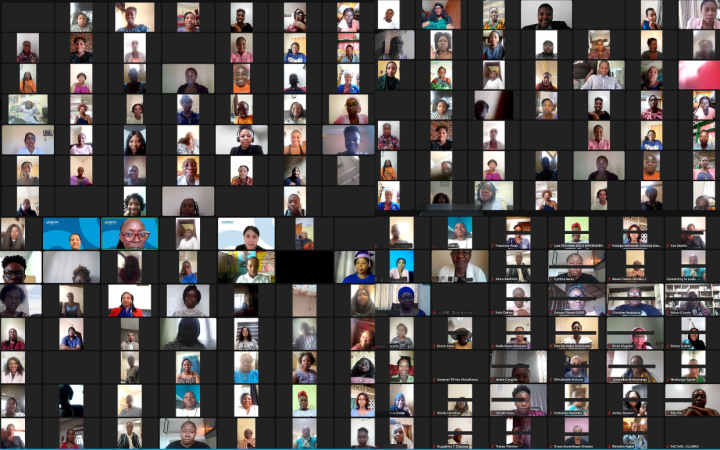More than ever, communications and media services are critical to Australian consumers, businesses and governments talking to each other, doing business, and schooling during the COVID-19 pandemic.
The ACMA is actively working with our industries to help them maintain these critical services while continuing to provide important consumer safeguards.
Here are some tips on how to stay safely connected during this unprecedented time for us all.
Dealing with your telco during the pandemic
Phone and internet services are critical to keeping Australians connected during the pandemic. The Australian Government is working with the telco industry to help ensure that the reliability, connection and continuity of services is maintained, including for Australians experiencing hardship or who are otherwise in vulnerable circumstances.
Telcos are working hard to maintain services to their customers and to provide the network capacity needed to support home-based work, schooling and increased use of online services.
Telcos, like many workplaces, are also adapting to new ways of working.
Some telco contact centres are operating with lower than normal staffing due to COVID-19 restrictions. So, you may experience longer than usual wait times on calls.
This may also impact on getting problems fixed as quickly as usual. It’s a good time to check out resources available from your provider on choosing the right speed and optimising your home set-up that may help you fix some problems yourself. This might include improving modem and wi-fi performance, checking in-home cabling and choosing the best speed for your needs.
If you are having problems you cannot fix, contact your telco. If you are not happy with your telco’s response, you may contact the Telecommunications Industry Ombudsman.
Hardship help from your telco
If you or your business are facing financial hardship as a result of the pandemic, telcos have financial hardship programs to assist you to keep connected.
Please check out your telco’s hardship program and contact them if you need help.
Some telcos have also helpfully increased the amount of data offered on mobile or internet plans, allowed free calls or other discounts to certain customers, or made calls to some government services free.
Triple Zero and Priority Assistance
Accessible and reliable emergency call services are always critical, and the free Triple Zero (000) service is available 100 per cent of the time during the pandemic.
Important additional information about how to contact emergency services is on our website, including guidance for people with hearing or speech impairments and for those in an emergency where it is not safe to speak.
Priority Assistance is a special service that some telcos, including Telstra, provide. It applies to landline services for people with life-threatening medical conditions.
It gives you faster fault repairs, shorter time to connect new services and more reliable service. Speak to your telco about what they can do if you have a serious medical condition.
Accuracy of broadcast news
The accuracy and accessibility of news and other critical information broadcast on commercial and national broadcasters remains essential during the pandemic.
There are rules in place that require accuracy in news that are enforced by the ACMA.
The ACMA will prioritise investigating allegations of inaccuracy of news content that directly relate to COVID-19 during this time. Find out how to complain about a broadcast on television or radio on our website.
Coronavirus information online
During the COVID-19 pandemic, false information is being circulated about treatments such as drinking bleach as a cure, and stories incorrectly linking 5G networks to the virus.
You can take the following steps to inform and protect yourself:
- Check the source of the material. See whether it comes from a credible website or from a verified account on the social media platform.
- Verify who else, particularly credible sources, is reporting the material.
- Check images and videos closely to see if they might have been edited or show an unrelated place or event.
- Visit a fact-checking website to verify the information. Try AAP FactCheck, ABC Fact Check and AFP Fact Check.
- Be wary if the material is related to an emotionally charged or divisive issue.
- If in doubt, don’t share it. You can also contact the platform directly if you have concerns.
- Digital platforms like Facebook and Twitter provide tips on how to spot disinformation. They also promote information from credible sources, such as COVID-19 updates from the Australian Government and the World Health Organisation.
We are currently working with digital platforms as they develop rules to address fake or misleading information.
Watch out for COVID-19 scams
Unfortunately, scammers use crises like the pandemic to target Australians through email, SMS and phone. These scams may try and look like trusted brands or use scare tactics to trick you into giving personal and financial details.
Some scammers are pretending to be government agencies providing information about COVID-19 and related support services to trick consumers. Some are even attempting to steal superannuation.
If its sounds suspicious or too good to be true, it probably is. Hang up, block calls or texts and don’t click on links.
If in doubt, make sure you verify who is contacting you by looking them up and calling back on a legitimate number, or going directly to their website. For example, to reach the MyGov website, type ‘my.gov.au’ into your browser rather than clicking on a link in a text.
We are working with the telco industry and a range of government bodies to reduce these scams and provide consumer alerts. Keep an eye out for scam alerts on our Facebook and Twitter accounts.
You can also find out about current COVID-19 related scams and report scams on the ScamWatch website.
The risks of online gambling
With many people finding themselves at home or spending more time online during the pandemic, we are concerned about the harms that can occur from illegal online gambling, especially offshore services that target Australians.
We strongly encourage you to not take the risk with these services. Even if you win, you might lose. You might not be able to access your money or even have additional unauthorised funds withdrawn.
Information on protecting yourself or making a complaint is available on the ACMA website.
Keep your family safe online
Staying connected online has never been more important, now that many of us are physically isolated from family members, friends, colleagues and support networks.
The eSafety Commissioner has a range of resources for parents, carers, educators and seniors to help keep Australians safe online.








